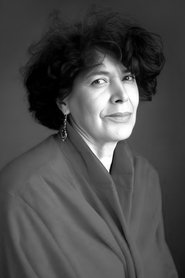Profile

Assia Djebar
Assia Djebar (آسيا جبار), pen name of Fatima-Zohra Imalhayène, born June 30, 1936 in Cherchell in Algeria and died February 6, 2015 in Paris, is an Algerian woman of letters, she obtained French nationality in 1967. She is considered one of the most famous and influential authors in the Maghreb. She was elected to the French Academy in 2005, becoming the first North African writer to be admitted there. Assia Djebar was born on June 30, 1936 into a traditional Algerian lower middle class family. His father is a teacher, his mother belongs to the Berkani family, an ancestor of whom fought alongside Abd El-Kader. Assia Djebar spent her childhood in Mouzaïa, studying at the French school, then in a private Koranic school. From the age of 10, she studied at Blida college and learned ancient Greek, Latin and English. She obtained the baccalaureate in 1953, entered hypokhâgne at the current Emir Abdelkader high school. In 1954, she entered khâgne at the Lycée Fénelon (Paris). The following year, she joined the École Normale Supérieure for young girls in Sèvres, in the History section. She is the first Algerian woman to join the school. In 1956, she followed the strike slogan of the General Union of Algerian Muslim Students, which protested against colonial repression in Algeria, and did not pass her exams, she would be excluded from school. She then decided to write her first novel, La Soif, under the pen name, "Assia Djebar": Assia, consolation, and Djebar, intransigence. General de Gaulle will request his reinstatement in the School in 1959 because of his “literary talent”. She married the writer Walid Garn and left France for North Africa. From that year, she studied and taught modern and contemporary history of the Maghreb at the Faculty of Letters in Rabat. She is putting together a thesis project on Lalla Manoubia, a holy matron from Tunis. On July 1, 1962, she returned to Algeria. She was appointed professor at the University of Algiers. In 1965 she adopted, with Walid Garn, the orphan Mohamed Garne. From 1966 to 1975, she lived most often in France, and regularly stayed in Algeria. She married Malek Alloula for the second time, from whom she subsequently separated. She directed two films, La Nouba Des Femmes Du Mont Chenoua in 1978, a feature film which earned her the FIPRESCI prize at the 1979 Venice Film Festival, and a short film, La Zerda Ou Les Chants De L'Oubli, in 1982. From 1997 to 2001, she directed the Center for Francophone and French Studies at Louisiana State University. In 1999, she defended her thesis at Paul-Valéry Montpellier University, on the subject of her own work. The same year, she was elected a member of the Royal Academy of French Language and Literature of Belgium. Since 2001, she has taught in the French studies department at New York University. On June 16, 2005, she was elected to the chair of the French Academy. She is an honorary doctor from the University of Vienna (Austria), Concordia University of Montreal (Canada) and the University of Osnabrück (Germany). She died on February 6, 2015 in Paris. She was buried on February 13, 2015 in her hometown of Cherchell, 100 km west of Algiers, in the presence of her loved ones, literary and political figures and a large crowd. Born : 30th-Jun-1936






 Kodiapps app v7.0 - Available for
Kodiapps app v7.0 - Available for 
